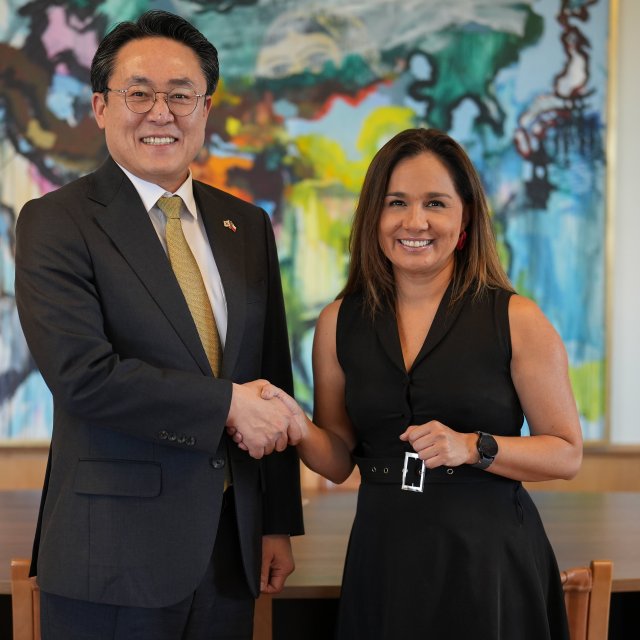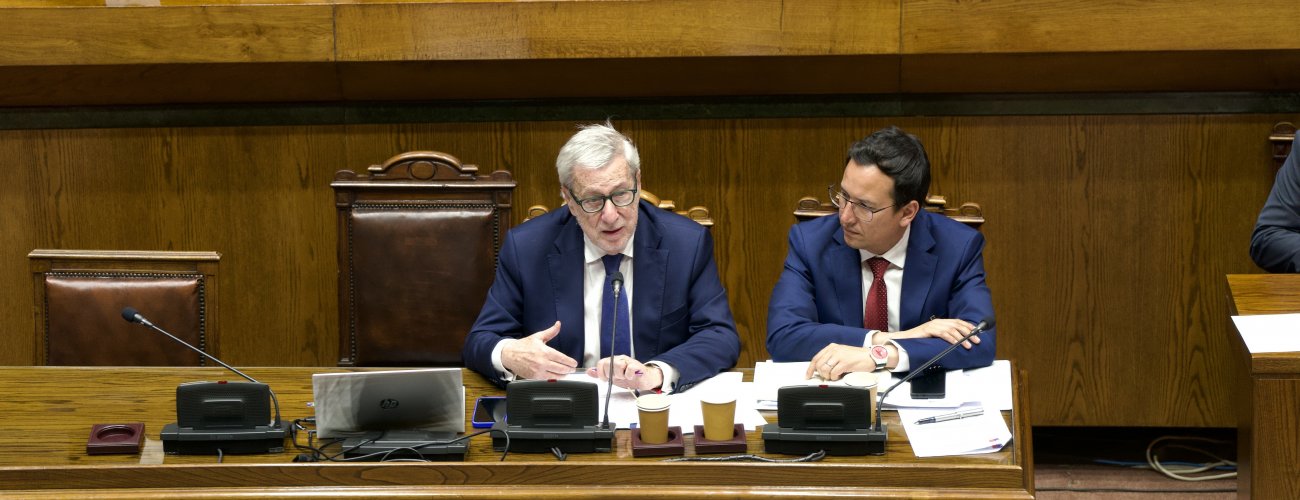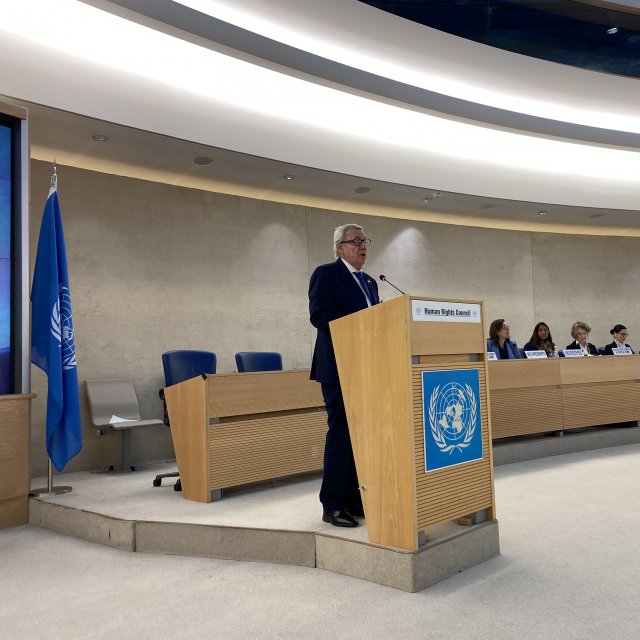 Thursday, February 27th 2025
Undersecretary meets with the Minister of Oceans and Fisheries of the Republic of Korea
Thursday, February 27th 2025
Undersecretary meets with the Minister of Oceans and Fisheries of the Republic of Korea
Minister of Foreign Affairs highlights Senate approval of the Advanced Framework Agreement with the European Union: “Strengthens a relationship with a historical ally”

By 38 votes in favor, the Senate Chamber approved the Advanced Framework Agreement (AFA) -and the Interim Trade Agreement (ITA)- between Chile and the European Union (EU), an initiative signed last December which modernizes the current Association Agreement in force since 2003. Thus, the project was ready for enactment.
The Minister of Foreign Affairs, Alberto van Klaveren, stated that this agreement “consolidates a political relationship that is especially relevant in the current international context (...) It really strengthens a relationship with a historical ally”.
“The European Union is a strategic partner of Chile. A partner for which Chile has an affinity that goes far beyond economic interests and extends very strongly to the political sphere and also to the cultural and public policy spheres,” he added.
This agreement will provide an updated institutional framework, which deepens bilateral relations, joint dialogue and establishes an update of political and cooperation issues in areas that reflect common values and principles such as democracy, human rights and fundamental freedoms, the rule of law and good governance, sustainable development and the environment, among others.
In addition, it establishes the need to create inter-institutional collaboration in all the areas included in this instrument, considering the parliamentary sphere and civil society, which will allow for the deepening and densification of the relationship between both parties.
It also addresses the new challenges of international trade, including new topics, and grants national products a better access to the European market, expanding the percentage of products covered by a tariff reduction by the European Union from 94.7% to 99.6% of the tariff lines, which represents almost the total of Chilean exports to the EU.
It also establishes a set of provisions that facilitate trade between both parties, promotes Chilean shipping of services to the EU and extends the recognition of geographical indications to Chilean agricultural products.
For the AFA to enter into force, the ratification of all the Member States of the European Union is required, so, in the first instance, the Interim Trade Agreement will enter into force, which only required the consent of the European Parliament, something that occurred in February of this year. While it is in operation, the Political and Cooperation areas of the Association Agreement signed in 2002 will remain in force.
Once the AFA is ratified by the EU Member States, it will replace the Association Agreement signed in 2002 and the Interim Trade Agreement will cease to be in force.
It should be pointed out that the European Union is the country's fourth largest trading partner. According to Central Bank figures, trade exchange has doubled to US$ 18,517 million in 2023, with an average annual expansion rate of 4.5%.
Related articles
 Thursday, February 27th 2025
Undersecretary meets with the Minister of Oceans and Fisheries of the Republic of Korea
Thursday, February 27th 2025
Undersecretary meets with the Minister of Oceans and Fisheries of the Republic of Korea
 Monday, February 24th 2025
Minister van Klaveren reaffirms Chile's commitment to human rights and gender equality
Monday, February 24th 2025
Minister van Klaveren reaffirms Chile's commitment to human rights and gender equality









